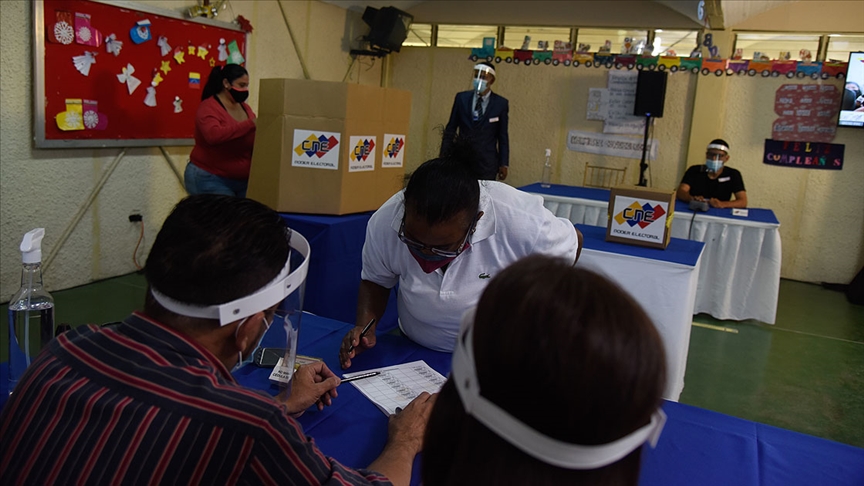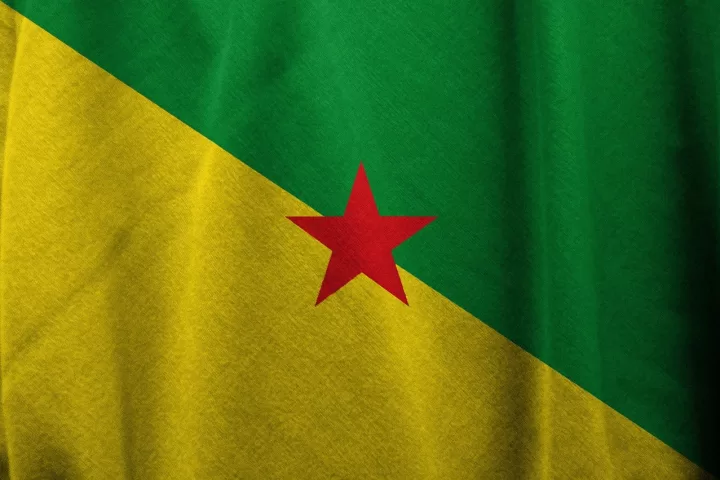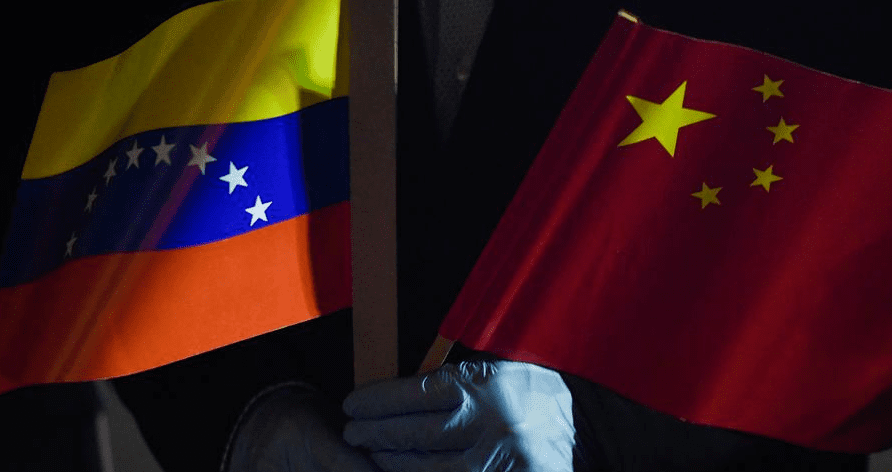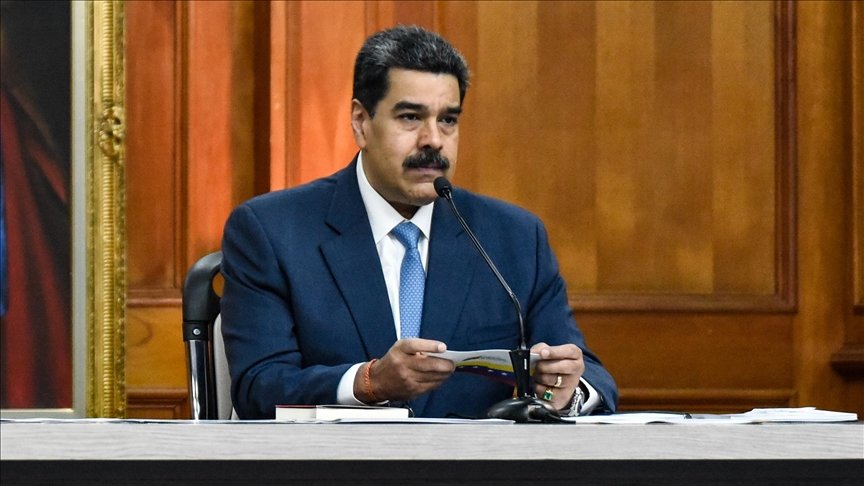Ballot boxes in Latin America, foreign intervention and Venezuela

Two extraordinary events that took place in Latin America last year revealed that left-leaning rulers and politicians in the region are facing a concrete threat. The first of these is the proclamation of the President of the Venezuelan Parliament and opposition MP Juan Guaido on 23 January 2019 in a park; The second was the removal of Evo Morales, who won the presidential elections for the fourth time in Bolivia, in a coup within twenty days, albeit by forcing the constitution on 20 October 2019.
These two important events, which do not coincide with the ideal democratic values, freedom and justice of the 21st century, showed that the left power holders in the region could be forced out of power, and democratic values could easily be trampled in this colorful geography of the new world.
Evo Morales left to stop the violence that was ravaging his country and to avoid the dangers to his person and his family. Venezuelan President Nicolas Maduro was able to maintain his power thanks to the social support behind him, standing with the army and militia groups.
Read more: The US election and the future of Western democracy
On the other hand, the opposition Parliament Speaker Jeanine Anez, who temporarily assumed power in Bolivia after Morales left the country, and the opposition Parliament Speaker Juan Guaido, who tried to take over the presidency on his own in Venezuela, have pushed the limits of incompetence, inconsistency and incompetence from the moment they took action.
Bolivia, where Morales’s party Socialism Movement Party (MAS) was taken from their hands by force and handed over to Anez, spent 2020 in the shadow of scandals, with the difficulties of the Kovid-19 epidemic on the one hand, and the incompetent and inconsistent policies of Anez, who was in power.
Events such as the interim president’s failure or inability to lead the country to elections within the time limit stipulated by the constitution, allegations of corruption and Anez’s assignment of a military helicopter to his daughter, have plunged the country into a new series of depression.
Unable to show a stable and determined administration, Anez announced that he would not remain in power first and that his duty consisted of taking the country to elections, but after a while he nominated for the presidency, and after successive mistakes and decreasing public support, he had to withdraw his candidacy.
Morales’ party MAS candidate Luis Arce won the elections, which could be held on October 18, 2020, only a year after the coup, with 55 percent of the vote, with substantial popular support, and the waters were settled in Bolivia for now.
Evo Morales returned from exile and again took over his party, MAS. We will see in 2021 how the balance of power and power will take shape between the former President and the legendary leader of the party, Evo Morales, who currently holds power, and the new President, Luis Arce, who served as minister of economy in his cabinet.
The coup against the powerful man of Venezuela, Maduro, started in Chacaito in the Juan Pablo II square. The self-proclaimed president, Juan Guaido, was recognized by the United States, the European Union (EU) and most Latin American states, but did not make nearly a barley-long journey. His attempt to force aid into the country and his attempt to capture the military base of La Carlota in Caracas with a handful of supporters were important steps that completely destroyed Guaido’s already highly controversial reputation.
The discovery that the aid truck burning at the Colombian border was not burned by the Venezuelan authorities as Guaido and his supporters alleged, it was a scene; The attempt to seize the base of La Carlota withered itself within a few hours, resulting in criticism and questioning of Guaido, not only by Maduro supporters but also by opposition groups. As a leader losing votes and respectability while in opposition, Guaido has transformed into a political figure supported and maintained by outside forces.
So much so that, even from within the opposition itself, voices began to rise against him: Even Henrique Capriles, who was a presidential candidate and struggled against both Hugo Chavez and Maduro before, now says that Guadio is a “exhausted politician”.
The Maduro administration, on the other hand, pursued a stable and patient policy against Guaido, who was accused of committing extremely serious crimes such as armed rebellion and violation of many articles of the constitution, and avoided steps that could further strain the country and legitimize the coup against the power in the eyes of the international public. In this context, Guaido, who has not been able to draw a very competent political profile, has been isolated by the government by following an extremely patient, measured and highly permissive policy towards Guaido.
Two extraordinary events that took place in Latin America last year revealed that left-leaning rulers and politicians in the region are facing a concrete threat. The first of these is the proclamation of the President of the Venezuelan Parliament and opposition MP Juan Guaido on 23 January 2019 in a park; The second was the removal of Evo Morales, who won the presidential elections for the fourth time in Bolivia, in a coup within twenty days, albeit by forcing the constitution on 20 October 2019.
These two important events, which do not coincide with the ideal democratic values, freedom and justice of the 21st century, showed that the left power holders in the region could be forced out of power, and democratic values could easily be trampled in this colorful geography of the new world.
Evo Morales left to stop the violence that was ravaging his country and to avoid the dangers to his person and his family. Venezuelan President Nicolas Maduro was able to maintain his power thanks to the social support behind him, standing with the army and militia groups.
On the other hand, the opposition Parliament Speaker Jeanine Anez, who temporarily assumed power in Bolivia after Morales left the country, and the opposition Parliament Speaker Juan Guaido, who tried to take over the presidency on his own in Venezuela, have pushed the limits of incompetence, inconsistency and incompetence from the moment they took action. Bolivia, where Morales’s party Socialism Movement Party (MAS) was taken from their hands by force and handed over to Anez, spent 2020 in the shadow of scandals, with the difficulties of the Kovid-19 epidemic on the one hand, and the incompetent and inconsistent policies of Anez, who was in power.
Events such as the interim president’s failure or inability to lead the country to elections within the time limit stipulated by the constitution, allegations of corruption and Anez’s assignment of a military helicopter to his daughter, have plunged the country into a new series of depression. Unable to show a stable and determined administration, Anez announced that he would not remain in power first and that his duty consisted of taking the country to elections, but after a while he nominated for the presidency, and after successive mistakes and decreasing public support, he had to withdraw his candidacy.
Morales’ party MAS candidate Luis Arce won the elections, which could be held on October 18, 2020, only a year after the coup, with 55 percent of the vote, with substantial popular support, and the waters were settled in Bolivia for now. Evo Morales returned from exile and again took over his party, MAS. We will see in 2021 how the balance of power and power will take shape between the former President and the legendary leader of the party, Evo Morales, who currently holds power, and the new President, Luis Arce, who served as minister of economy in his cabinet.
The coup against the powerful man of Venezuela, Maduro, started in Chacaito in the Juan Pablo II square. The self-proclaimed president, Juan Guaido, was recognized by the United States, the European Union (EU) and most Latin American states, but did not make nearly a barley-long journey. His attempt to force aid into the country and his attempt to capture the military base of La Carlota in Caracas with a handful of supporters were important steps that completely destroyed Guaido’s already highly controversial reputation.
The discovery that the aid truck burning at the Colombian border was not burned by the Venezuelan authorities as Guaido and his supporters alleged, it was a scene; The attempt to seize the base of La Carlota withered itself within a few hours, resulting in criticism and questioning of Guaido, not only by Maduro supporters but also by opposition groups.
As a leader losing votes and respectability while in opposition, Guaido has transformed into a political figure supported and maintained by outside forces. So much so that, even from within the opposition itself, voices began to rise against him: Even Henrique Capriles, who was a presidential candidate and struggled against both Hugo Chavez and Maduro before, now says that Guadio is a “exhausted politician”.
The Maduro administration, on the other hand, pursued a stable and patient policy against Guaido, who was accused of committing extremely serious crimes such as armed rebellion and violation of many articles of the constitution, and avoided steps that could further strain the country and legitimize the coup against the power in the eyes of the international public. In this context, Guaido, who has not been able to draw a very competent political profile, has been isolated by the government by following an extremely patient, measured and highly permissive policy towards Guaido.



